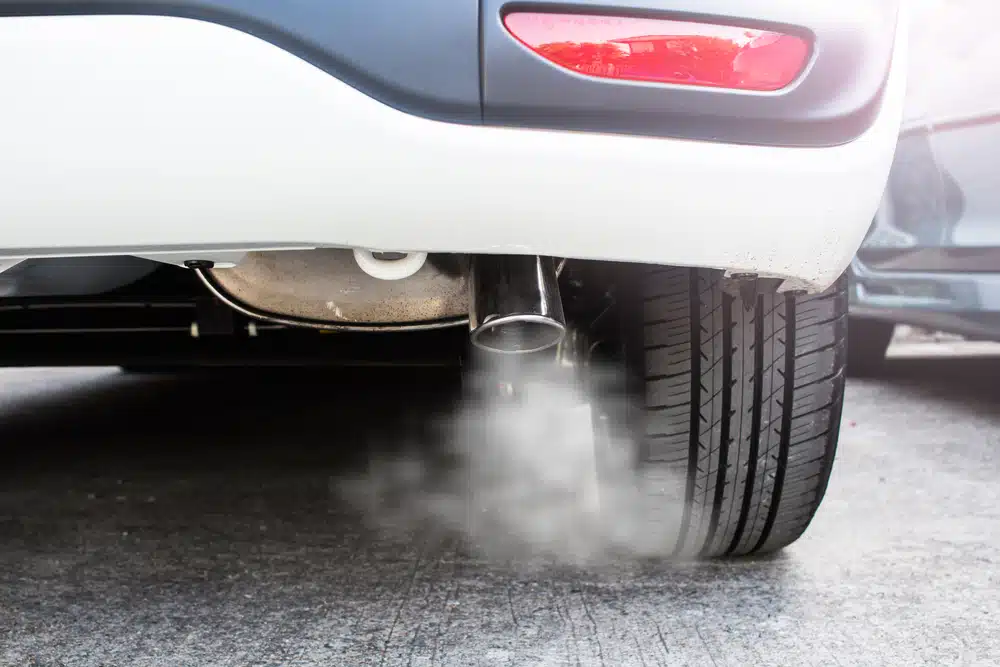In September 2021, the California Air Resources Board (CARB) adopted a significant amendment to the Omnibus Low NOx regulation. This move sets more stringent standards for NOx and Particulate Matter emissions for medium- and heavy-duty diesel engines beginning with the 2024 model year.
Notably, the rule now encompasses medium-duty engines, impacting a wide range of vehicles including many classes of motorhomes.
Initially promulgated in 2002, the Omnibus Low NOx rule has undergone several amendments over the past two decades. The 2021 update is particularly impactful, extending the engine idling provisions to medium-duty engines and removing exemptions previously enjoyed by the RV industry.
This change marks a significant shift in regulatory approach, reflecting CARB’s intensifying focus on environmental standards.
Starting January 1, 2024, all heavy-duty diesel engines in motorhomes must display labels certifying compliance with the Clean Idle provisions of the regulation, as per the News & Insights report of the RV Industry Association (RVIA).
Failure to adhere to these labeling requirements will prevent the registration of these motorhomes in California, highlighting the critical need for compliance from manufacturers, dealers, and consumers alike.
The regulation aims to overhaul engine testing procedures and extend engine warranties, underscoring California’s commitment to reducing emissions and enhancing public health. This move is a pivotal part of California’s broader environmental policy, aimed at meeting federal air quality standards and safeguarding public health.
CARB’s regulation is a proactive step in dramatically reducing smog-forming emissions from heavy-duty diesel trucks. The regulation will compel manufacturers to meet more rigorous emissions standards, fundamentally changing how diesel trucks operate, especially in “low load” conditions common in heavy traffic areas.
The new standards significantly increase the cost of engines used in motorhomes. CARB estimates a substantial rise in the lifetime cost of ownership for both heavy-duty and medium-duty diesel engines, affecting manufacturers and consumers within the RV industry.
CARB continues to actively engage with communities and stakeholders through public workshops and hearings. These efforts are part of a comprehensive strategy to reduce emissions and improve air quality, with a particular focus on communities heavily impacted by truck traffic.
CARB staff is proposing amendments to the Omnibus regulation to offer additional compliance flexibility to engine manufacturers. These amendments aim to ensure that the emissions benefits of the program are not reduced while adapting to industry needs and technological advancements.
This regulation represents a significant step in California’s journey towards cleaner air. By targeting heavy-duty vehicles, which are major contributors to NOx emissions, CARB is addressing a crucial area of environmental concern.
The regulation is expected to drastically reduce NOx emissions, equating to taking millions of light-duty cars off the road. These reductions are projected to result in substantial health benefits, including avoiding premature deaths and hospitalizations and yielding significant healthcare cost savings.
The CARB Low NOx rule marks a turning point in environmental regulations for motorhomes and heavy-duty vehicles. By January 2024, the RV industry must adapt to these new standards, reflecting a broader societal shift towards environmental consciousness and public health prioritization.
For more detailed information, inquiries can be directed to Michael Ochs, RV Industry Association Director of State Government Affairs, at 571-665-5860 or [email protected].


